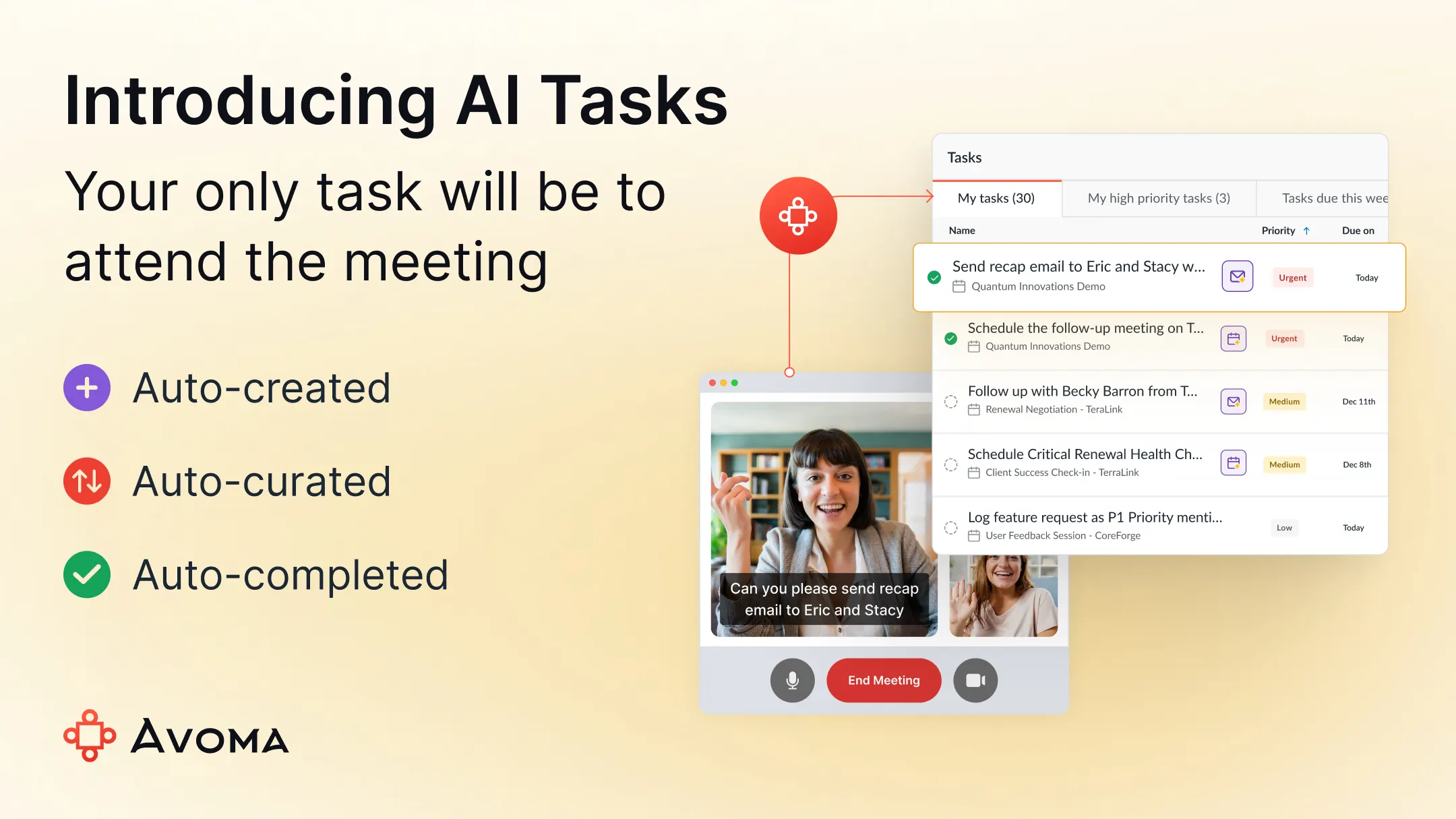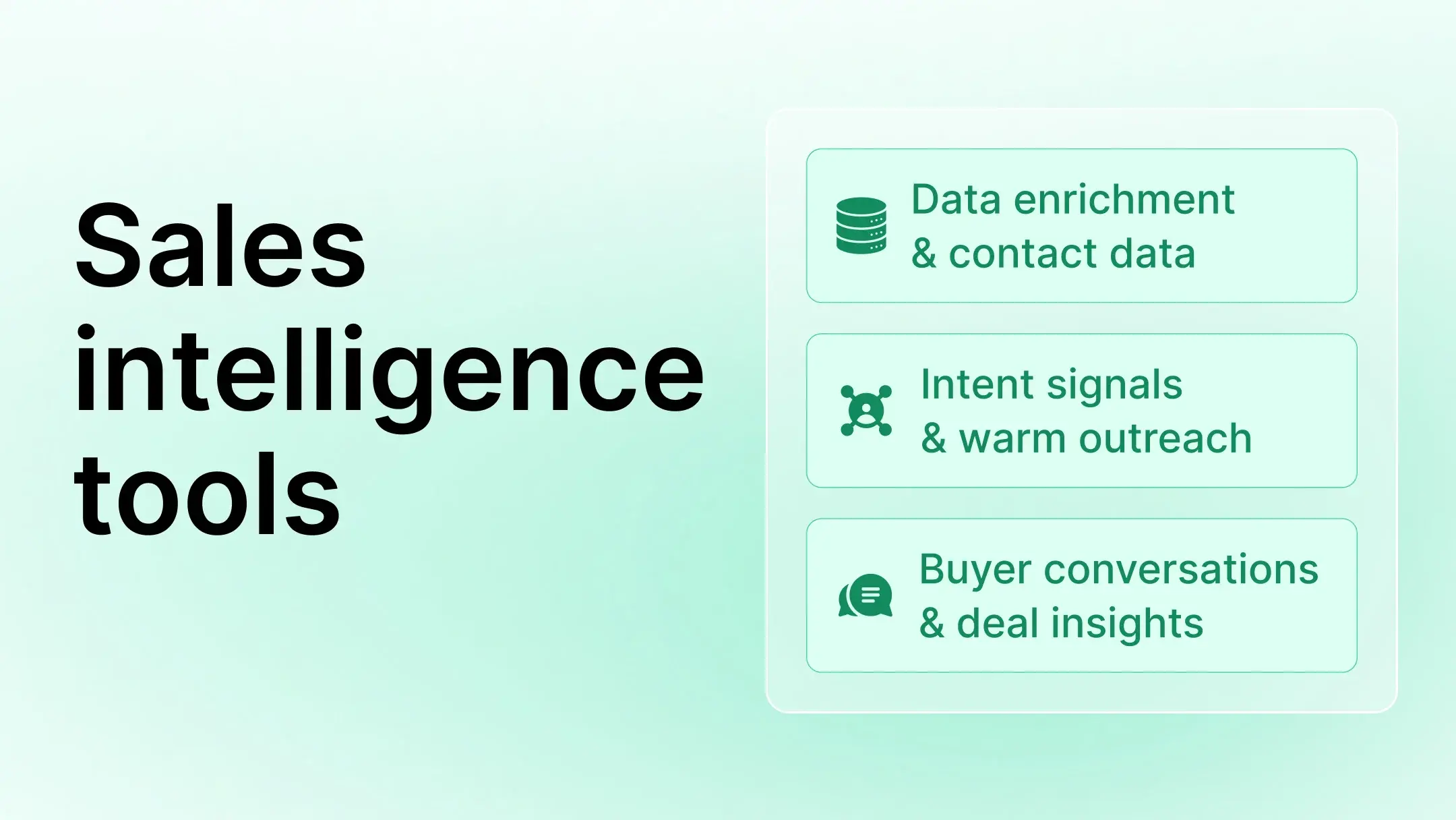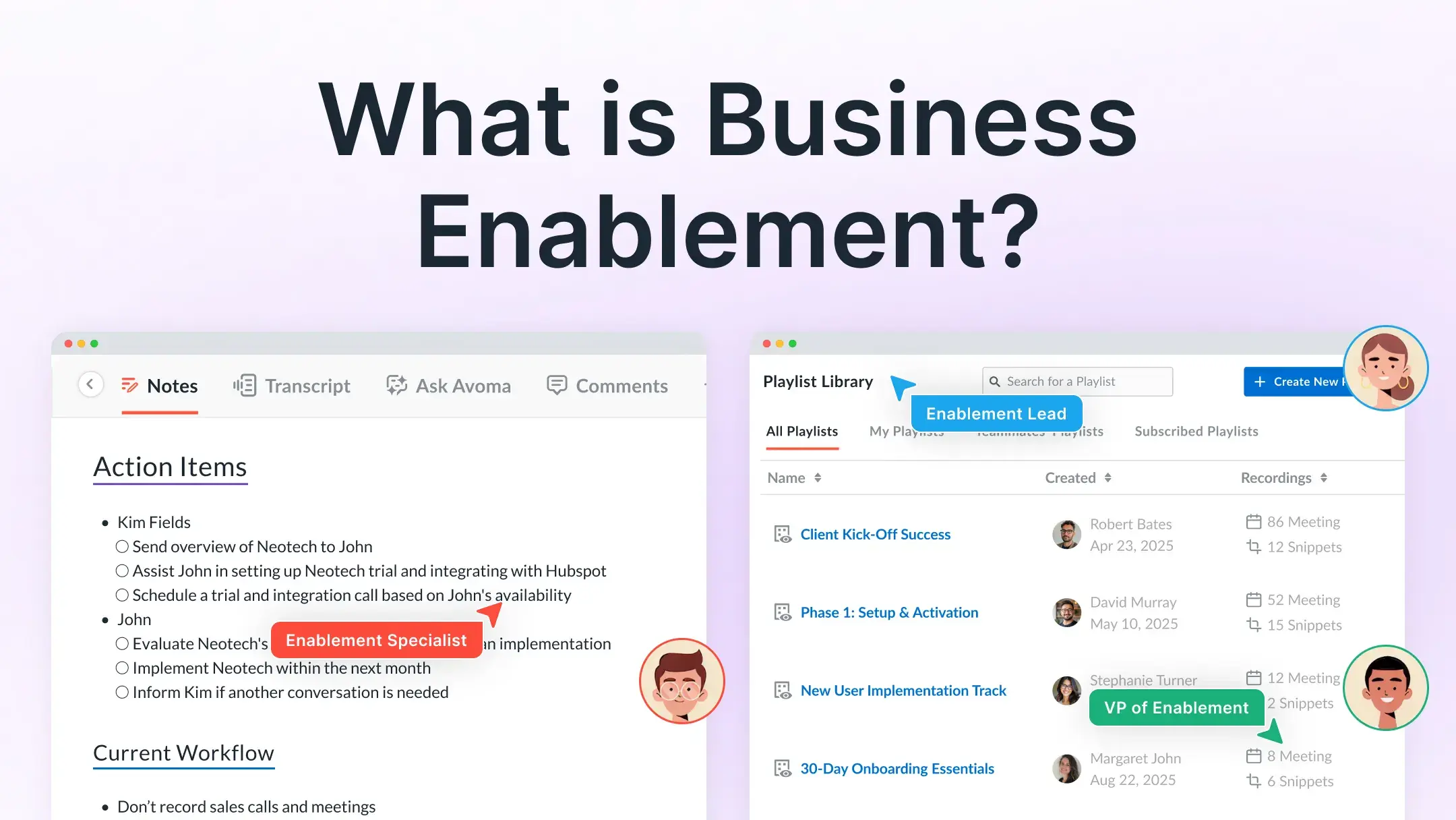Gong.io vs. Zoom Conversation Intelligence: Which one should you buy?
Table of Contents:

You're probably here because you are evaluating between Gong and Zoom's conversation intelligence. Given that you are here, either you are leading or managing a sales team, or you are managing revenue operations or sales enablement responsibilities at a fast-growing B2B organization.
Kudos to you for taking the right step in looking for a solution that will help improve the performance of your sales team. It's probably time to get a platform that will help you make the most of the meetings across your teams and ensure you don’t let any deal slip through the cracks.
If you are wondering which one you should buy or seeking an in-depth and objective comparison between Zoom Revenue Accelerator and Gong—don't worry. You're not alone. We have written this article to help you get answers to your questions and get clarity to decide which tool is the best fit for your needs. Alright, let’s go!
Zoom Revenue Accelerator—a logical extension to Zoom meetings and Zoom Phone
There are features and product aspects similar and different between Zoom Revenue Accelerator and Gong (which we get to further down this page if you're interested). However, the biggest difference is in the who and why.
Another key difference is the scope of what Gong and Zoom Revenue Accelerator solve for. Zoom began as and remains best-known for its web conferencing platform, which later launched its own conversation intelligence tool for sales—Zoom IQ for Sales, which is now rebranded as Zoom Revenue Accelerator.
That’s great progress and logical, too, in terms of offering an all-in-one solution for its customers. Still, its conversation intelligence offering is limited to a) the sales audience and b) those who use Zoom meetings and Zoom Phone.
Gong.io—a revenue intelligence platform for sales
Gong is positioned as a revenue intelligence platform for sales. It is definitely beyond what can be defined as conversational intelligence software (call recording, transcription, conversation analytics), but to become a complete revenue intelligence solution, they need to be tracking more than deal progression.
To be truly revenue intelligence software, Gong would also need to track activities from various marketing functions. They’re definitely headed in that direction with the launch of Gong Engage.
How to choose between Gong and Zoom Revenue Accelerator?
Both companies are market leaders, have raised hundreds of millions of funding, have thousands of customers and glowing reviews on Software review sites, and have comparable offerings from a product and functionality perspective.
Given all this, it isn’t easy to choose between the two. That’s why we’re here to help.
But before pulling the trigger to choose between two, let’s first understand how to evaluate these tools.
Key factors for evaluation
1. Ease of use
This is arguably one of the most important aspects of the solution, as it will make or break adoption of the platform among your organization.
Questions to consider:
- Is the tool hard to set up and implement? Do you need a dedicated manager to administrate the tool?
- Is there a self-serve option to try it out yourself, or the only option is talk to the sales team, get the training for your end-users and admins?
- Does the tool benefit on an ongoing basis only to a handful of people, or everyone who is using it?
- Will you see excitement and higher adoption initially when the insights are new, or will it also get used after 90-days once people know what’s their Talk-time ratio, who are common competitor mentions, etc.?
2. Product functionality
This is probably the second most important aspect of evaluating the solution, to check if they offer comprehensive and comparable functionality.
Questions to consider:
- How comprehensive is the product functionality and features?
- What integrations do they support? Do they support natively or via some 3rd party API connectors?
- What functionality is flexible, customizable, etc.?
- What are your needs? Do you need all the bells and whistles?
3. Pricing
This is not the most important aspect of making a purchase decision, but everyone wants to buy an affordable solution, that also is the best of breed. And deciding becomes difficult when both of them have extremely different approaches to pricing.
Gong doesn’t provide pricing transparently on their website, whereas Zoom offers so many packages with 6 pricing tabs and add-ons in addition to it.
Questions to consider:
- Does everyone in your org need all those functionalities?
- Can you mix and match based on what each user would want and be priced accordingly?
- Are you going to pay for something that looks fancy, but you are not going to have time to use it actively, etc.?
- Is there a minimum platform fee, initial implementation or set up fee?
- What about ongoing customer success and training? Is there an extra fee?
- Is the pricing affordable, flexible and fair?
4. Future proof
While today a specific solution might serve your current needs for sales coaching and onboarding, have you considered how this solution will fit in for your future needs.
Questions to consider:
- What will happen after the initial reps are onboarded using this tool? What if you’re not planning to hire more reps continuously as a high-growth organization?
- Will this tool scale to other functions in the organizations if the need arises for the Product, Marketing or Recruiting teams to record and transcribe their meetings? That said, let's now look at Gong and Zoom Revenue Accelerator specifically.
Now, let’s look at each of the four parameters in detail.
Zoom Revenue Accelerator Vs. Gong: Step by step evaluation
The TL;DR version
Zoom Revenue Accelerator positions itself as a Conversational Intelligence platform for sales, focusing on closing deals faster, providing actionable feedback in terms of sales coaching and helping leaders in their forecasting.
Gong offers more depth in terms of conversation intelligence and sales coaching. In addition, Gong’s strong forte is revenue intelligence, with features like forecasting that help sales teams with actionable insights to ensure the deals don’t slip through the cracks.
In terms of the market, the two Zoom Revenue Accelerator is appreciated more in the SMB segment, whereas Gong is more popular with customers in the mid-market and enterprise segment.

1. Ease of use
Both Zoom Revenue Accelerator and Gong are rated highly for their ease of use by their respective customers. Gong has been in the world of conversation intelligence for quite a few years and has consistently delivered for their customers as G2 shows they’re rated 4.7/5 with 5300+ reviews.

In the case of Zoom, though they’ve recently jumped into this segment, the UX feels like a natural extension of the Zoom interface you’re used to.

What’s missing?
As these systems are getting comprehensive with a focus on solving adjacent problems compared to where Gong and Zoom started, it seems like they’re getting too bloated and complex to use. Sometimes, it results in a lack of nuance when delivering even the most basic promise.
For example, when Gong’s AI generates notes for sales conversations, it fails to differentiate between what’s small talk and something more important, like a prospect sharing pain points during a meeting.

This is where Avoma makes a difference. Avoma uses its own AI models on top of generative AI so that ease of use isn’t just about easily using the product but also about ensuring contextual relevance in a user’s day-to-day workflow.
2. Product functionality
Gong
Gong primarily takes the angle of being a Revenue Intelligence platform to distinguish their sales use cases into four major areas — deal execution, coaching, forecast, and strategic initiatives.

Zoom Revenue Accelerator
It primarily takes the angle of enhancing sales IQ with conversational AI. The platform is primarily for sales teams—by giving them meaningful and actionable insights from their customer interactions to improve seller performance. Zoom Revenue Accelerator analyzes customer interactions to surface key insights, actions, and content from sales meetings. Sales leaders can also use this data to help make better-informed management decisions regarding their sales teams.

With actionable insights based on proven sales strategies and a wealth of data, organizations can streamline the new sales rep onboarding process, create a modern sales methodology, and further develop their sales teams.
– Theresa Larkin, UCaaS Product Marketing Manager, Zoom
What’s missing?
AI coaching assistant. Both Gong and Zoom Revenue Accelerator offer scorecards for sales coaching, however they are largely underutilized by sales leaders because of their limitations.
At Avoma, we talk to several sales teams day in and day out who come to us to evaluate Avoma’s conversation intelligence capabilities to improve their sales performance. As part of our discovery, we ask them several questions regarding their pain points, use cases, and objectives.
Our conversations tell us that 75% of sales leaders don’t even listen to sales calls—despite having the right tools in place.
Imagine that you have a team of 5 AEs who do 5 demos per day on average, and each of these demos is a 30-minute meeting.
That’s 5 x 5 x 30 mins = 750 minutes of demo meetings daily.
Which sales leader will ever have that much time to listen to calls every day?
That’s where AI comes in. This is exactly why Avoma built an AI coaching assistant as part of the coaching tool set in our conversation intelligence platform.
- AI listens to sales calls, reviews them and assigns scores
- Removes potential biases in coaching
- It gives you 100% coverage for all sales calls so that no conversation slips through the cracks for potential learning and coaching
3. Pricing
When you visit Gong’s website — you won't see pricing right off the bat. So, if you want to trial their platform or want a demo, you need to go through a typical enterprise-style form where you will be BANT qualified by an SDR before you even get a glimpse of the product. And it's not necessarily a bad thing.
Gong Pricing
Gong pricing is not public, but going by the reviews and discussions on publicly available forums like review sites and social media, it seems like — if you aren't able to commit to a minimum of $ 5,000 - $10,000 per annum as a budget — you would end up wasting your time going through the grind.

Zoom pricing
Zoom’s pricing page doesn’t seem to align with its “ease of use” mantra. For example, when you select the Zoom One bundle, though their pricing page looks simple, it’s quite tricky to understand what’s included in each plan in depth.

For instance, though their website talks about Conversation Intelligence as part of Zoom One, a deeper look into their pricing plan comparison would tell you that it’s not part of any of the Zoom One plans, and you’ve to purchase it as an add-on.

What’s missing?
You will be spending $1400/seat/annum with Gong. It is ideally suited for enterprises and upper mid-market. On the contrary, though Zoom looks like it’s priced for SMBs, the sheer number of add-ons and the amount of mix and match you need to do to arrive at what you want for different user persons on your team — make it very complicated.
What if you are an SMB or mid-market? What if the platform in its entirety is an overkill compared to your use case?
You need pricing that is designed for the entire organization and yet optimized for individual needs. The pricing plans try to strike a balance between giving clarity on what’s available in each plan and allowing you the flexibility to pick and choose what’s best for your needs.
4. Future proof
Gong and Zoom Revenue Accelerator
Gong is primarily used for sales coaching and forecasting, and it's a great fit if you are a fast growing mid-market or an enterprise who is continuously hiring more sales reps or account executives.
Zoom is a great fit if you’re already in the Zoom ecosystem using their web conferencing, Zoom Phone, and other cloud solutions.
But what if your sales team is using multiple conferencing tools like Google Meet or MS Teams? Or what if your SDR team is using other dialers like Aircall, Outreach, or Salesloft?
And what if other functions such as Product, Marketing, or Recruiting teams want to leverage the platform to record, transcribe and get insights for their meetings? Neither Gong nor Zoom are currently catering to non GTM functions.
And even if you wanted to use it for other use cases, its pricing model plus doesn’t offer enough flexibility for that. And if you are in the phase, where you want to encourage cross functional collaboration, then you might want to leverage the power of Avoma.
Final verdict
Both Zoom Revenue Accelerator and Gong are great tools. So, which one should you choose?
- If your use case is limited to sales, and you’re looking for a lightweight conversation intelligence tool that can leverage your Zoom ecosystem, then Zoom is a great choice.
- If you are a high growth organization with a strong need for revenue intelligence (because you hire sales reps and AEs continuously), and if you want to go for a cult brand - go for Gong.
- If you want a comprehensive purpose-built conversation intelligence, and integrate with a diverse ecosystem of CRMs, dialers and conferencing tools—Avoma has got you covered in terms of ease of use, scalability of use cases and flexibility in pricing.
Hope you found this blog post useful!
Frequently Asked Questions






What's stopping you from turning every conversation into actionable insights?










